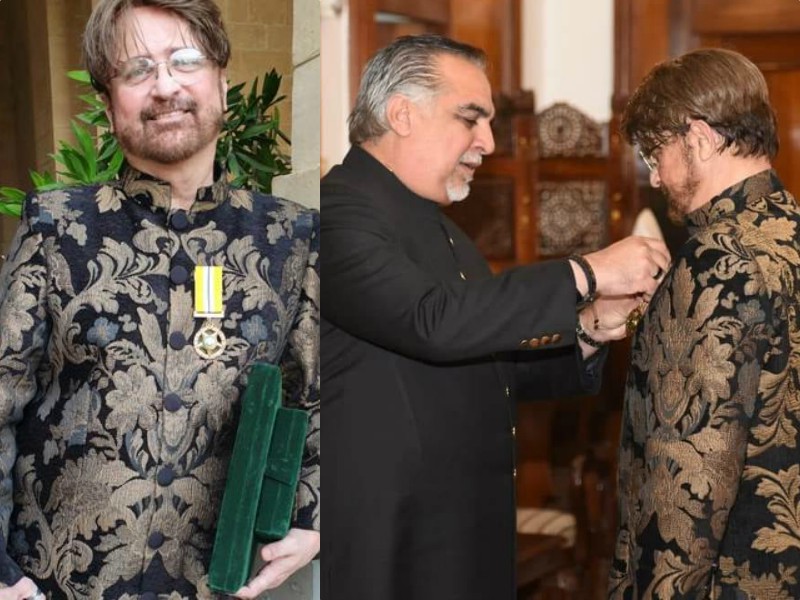
Eschewing the shackles of commercial fashion is a feat on its own, and designer Rizwan Beyg has been dabbling in it for three decades now.
The fashion maven initiated his career in 1989, when haute couture had just reared its head in Pakistan. His aesthetic eventually drew connoisseurs towards him, leading to a landmark moment in his career when he dressed Princess Diana during her visit to Pakistan in 1996.
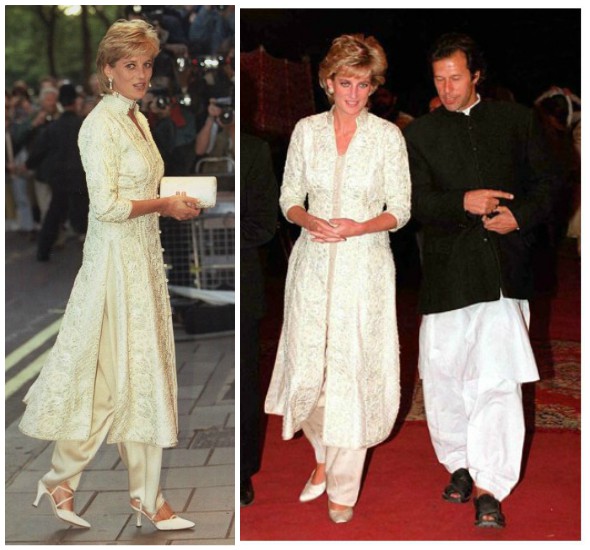
Beyg’s determination for non-conformity has not only led him to discover rural craft that neared extinction but also allowed him to reserve that cultural heritage while empowering the rural women of Pakistan.
He later became a founding member of AHAN (one village one craft), a government-based project that initiated during Pervez Musharraf’s time. Beyg conducted several surveys across Pakistan for this project, identifying communities that specialised in various cottage-industry level craft-based skills.
His discoveries eventually led him to establish Bunyyaad, a project that prioritises in craft revival and sustainable income generation for indigenous artisans. And for this the government awarded him with the highest civilian honour – the Tamgha-e-Imtiaz on September 7, 2020.
Awakening
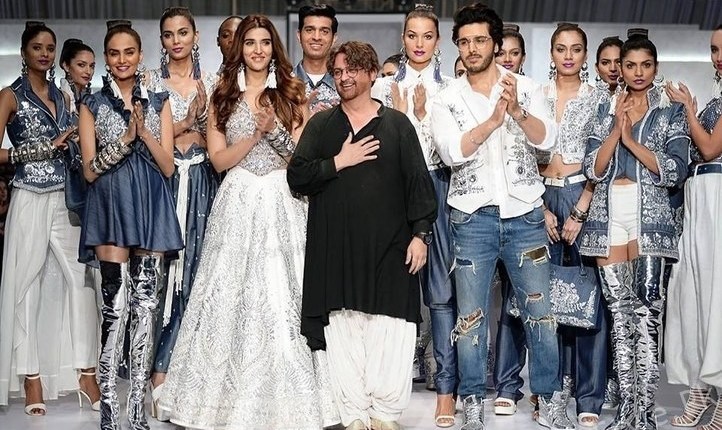
“As a child I’d be enamored by everything the elder women of my household would wear. I didn’t grow up in a world of mechanisation so there was always this reverence for everything handmade and precious,” Beyg told The Express Tribune.
The fashion guru then recalled moments from his surveys for AHAN that changed his life and gave him a purpose. “Among other things, on my journey I discovered craft that was near extinction and even products such as the phulkari shawl, which you might not find anywhere anymore. But most importantly, I saw the skill of the women who’d make these designs and how they were unaware of their talent,” he claimed.
Beyg explained how the stories attached to these products made by the rural women, were the primary reason he became so interested in them. Ultimately, listening to one such story became his eureka moment.
“During my interactions, a woman told me that a middleman had commissioned a sari from her which she worked on for three months. But by the end of it, there were stains of blood on that sari because she had accidentally pricked her finger while working on it. It was quite literally a labour of blood and sweat,” remarked the designer.
“The sari was so gorgeous you will not believe it. But she was devastated because the middleman had refused to purchase it from after acknowledging the stains. And when I asked her how much he was going to pay her for it, she said ‘Rs3000’.”
Shuddering at the thought, Beyg expressed how in that moment, he couldn’t believe that a profession he had been earning so much from was a curse for these women who were exploited so easily. “I wanted to cry. She begged me to just take the sari from her for Rs1000 and I had Rs25000 in my pocket. I gave them to her and took the sari which I still have and I will always keep.” he assured.
From that moment onward, Beyg decided to do something for these artisans, and so he started off by ridding them of the slavery of the “round embroidery frame.”
Eliminating exploitation
“I began taking the karigars from the city to the rural areas so they could train these women. Initially, they couldn’t work communally because everything was so complex. There is this parda system, so women couldn’t work outside of their homes,” explained Beyg.
He shared how he freed them from the solitary confinement they’d been previously working in by calling them in groups outside of their homes at various centers.
While running these training centers for three, he even came up with a transparency plan making it compulsory for all these women to have their own bank accounts. “The women we had employed to distribute the artisans’ payments were corrupt. So we had to ensure they received their payments without relying on any middleman or woman,” said Beyg.
He also shared how several donor agencies had previously trained some of the communities of women he works with. But once they’d leave, there would be a cultural debris. “Many women straight up told me that they did not need more training and lectures; they needed a permanent source of income,” said the Tamgha-e-Imtiaz recipient.
Beyg relayed how designers would often also approach these women and get things made – relying on the craft they already knew – for cheap. “These women would either end up selling thousands of worth of products in a few hundreds to the designers or the bazaars that told them their craft wasn’t worth much.”
He then reiterated how in Europe, it’s so difficult to find people who excel at handmade garments, that basic designer clothes and haute couture end up costing an arm and a leg. “As a result, they also started subscribing to South East Asia because they know people here sell these handmade luxuries for nickels.”
However, he went on to assure that the women employed by him are initially educated about their work, helping them know exactly what it is worth. “Till this day, they name their price, and we give them whatever they ask of us. At the moment we are working with five different communities of 25 women each,” he revealed. Adding that the financial independence these women gained in return, has changed their life.
Empowerment
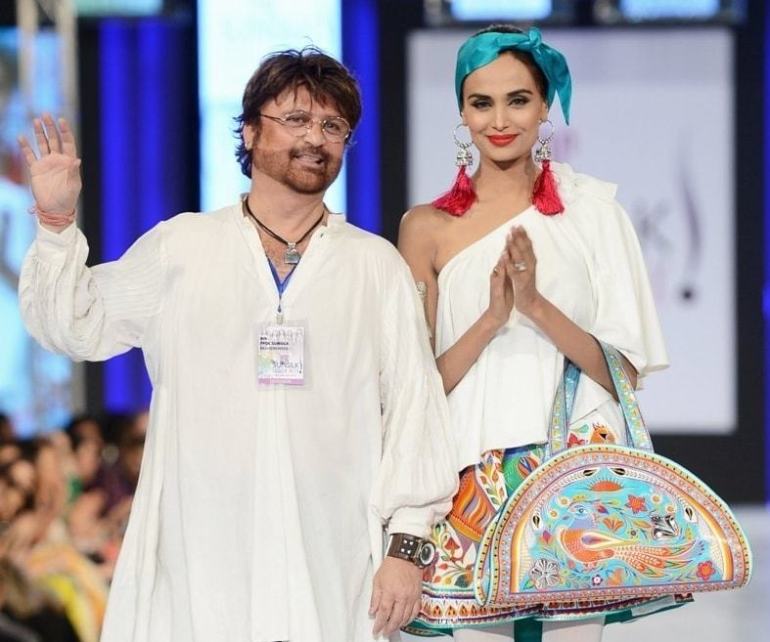
“In the beginning, there was this one woman whose father-in-law was against her working, but thankfully her husband was supportive. When she started returning home with safety packages and money, her father-in-law eventually started dropping her off to work himself,” recalled Beyg.
He then narrated a hilarious incident where a man gave him a call to complain about his wife who kicked him out because she wouldn’t tolerate being abused by him anymore – especially since she was the one financially running the house now.
“He was upset that she wouldn’t let him hit her because she was financially independent now and had even kicked him out. It made me so happy,” Beyg giggled.
“Economic change can bring a revolution and I’m glad it did for these women,” concluded the maven.
Have something to add to the story? Share it in the comments below.






1729930993-0/WhatsApp-Image-2024-10-26-at-08-52-06-(2)1729930993-0-270x192.webp)
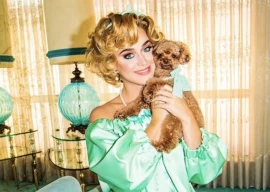









COMMENTS
Comments are moderated and generally will be posted if they are on-topic and not abusive.
For more information, please see our Comments FAQ